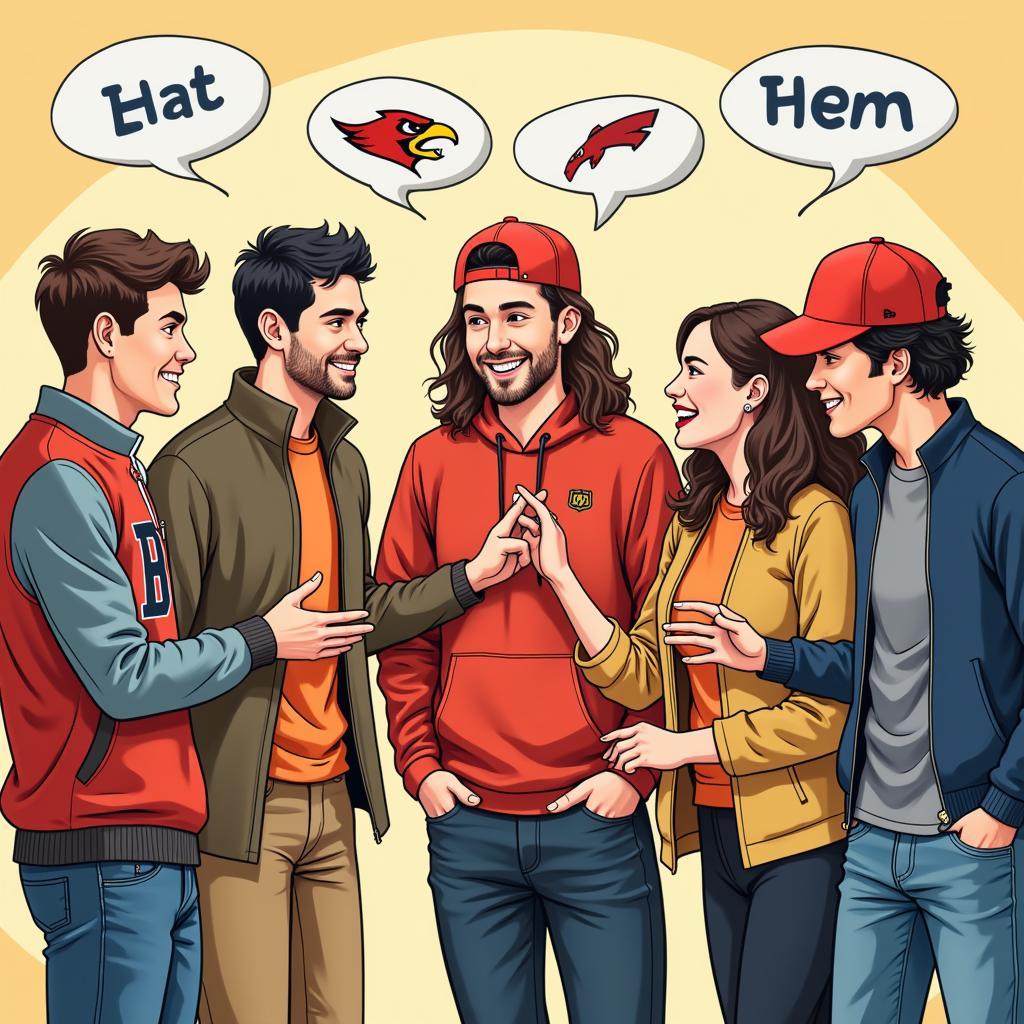The term “Reverse Fan” has gained traction in recent years, sparking curiosity and debate among sports enthusiasts. It refers to a fascinating psychological phenomenon where individuals actively root against a particular team or athlete, often with more passion than they display for their favored ones. This article delves into the intricacies of the reverse fan mentality, exploring its motivations, manifestations, and impact on the sporting world.
What Motivates a Reverse Fan?
Why do some fans derive pleasure from another team’s failure? The reasons are multifaceted, ranging from personal experiences to societal influences. Some reverse fans may have experienced past injustices or perceived slights from their formerly supported team. Others might be driven by a dislike for the team’s current players, management, or even fanbase. Rivalry plays a significant role, as the intense competition between teams can breed animosity and fuel the desire to see the opponent falter. Finally, some individuals simply enjoy the drama and schadenfreude associated with rooting against a dominant or popular team.
The Psychology Behind Reverse Fandom
The “reverse fan” phenomenon can be viewed through the lens of social identity theory. Individuals often define themselves in relation to groups, including sports teams. By actively opposing a specific team, reverse fans may be reinforcing their own identity within a different group, perhaps one that shares a common dislike for the targeted team. This creates a sense of belonging and camaraderie.  Reverse Fan Rivalry
Reverse Fan Rivalry
Reverse Fandom and Its Impact on the Sporting World
The rise of social media has amplified the voice of reverse fans, allowing them to connect, share their opinions, and even organize collective actions. This can influence public perception of teams and athletes, and even impact team morale. While some may view reverse fandom as a negative force, it can also add a layer of complexity and intrigue to the sporting landscape. The passionate engagement of reverse fans, even in opposition, contributes to the overall buzz and excitement surrounding sporting events.
How to Spot a Reverse Fan?
Recognizing a reverse fan can be tricky, as they may outwardly express support for their supposed team. However, their true colors often reveal themselves in subtle ways. They might celebrate the team’s losses more enthusiastically than their wins. They might constantly criticize the team’s performance, even in victory. And they might express an unusual level of satisfaction when a rival team succeeds. Do you need a ceiling fan with a remote? Check out our selection here: ceiling fan with remote.
Is Reverse Fandom Healthy?
The question of whether reverse fandom is healthy is subjective. For some, it can be a harmless outlet for competitive emotions. For others, it can border on obsession and negativity. The key lies in maintaining perspective and avoiding excessive hostility.  Healthy Reverse Fandom It’s similar to understanding backward fan flow and how it affects performance – backward fan flow. Are you looking for some high-quality hunter fans? We’ve got you covered: hunter fans.
Healthy Reverse Fandom It’s similar to understanding backward fan flow and how it affects performance – backward fan flow. Are you looking for some high-quality hunter fans? We’ve got you covered: hunter fans.
Conclusion
The “reverse fan” phenomenon is a complex and intriguing aspect of sports culture. While its motivations can be varied, and its impact sometimes controversial, it undoubtedly adds another dimension to the passionate world of sports fandom. Embracing this phenomenon with a sense of humor and understanding can enrich the overall fan experience. We also have a great article about cooling fan resistors: cooling fan resistor. For those interested in laptop modifications, you might find our article on laptop cooler master fan mod benchtable helpful: laptop cooler master fan mod benchtable.
FAQ
- What is a reverse fan?
- What are the common motivations behind reverse fandom?
- How does social media impact reverse fan behavior?
- Is reverse fandom considered harmful?
- How can I tell if someone is a reverse fan?
- Can reverse fandom be a positive force in sports?
- How does reverse fandom relate to traditional sports rivalry?
Need support? Contact us 24/7 at:
Phone: 0903426737
Email: fansbongda@gmail.com
Address: Lot 9, Area 6, Gieng Day Ward, Ha Long City, Gieng Day, Ha Long, Quang Ninh, Vietnam.


